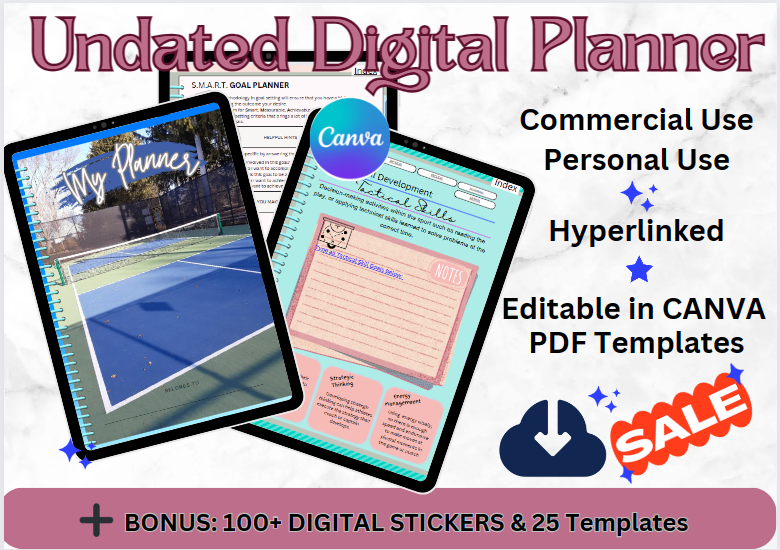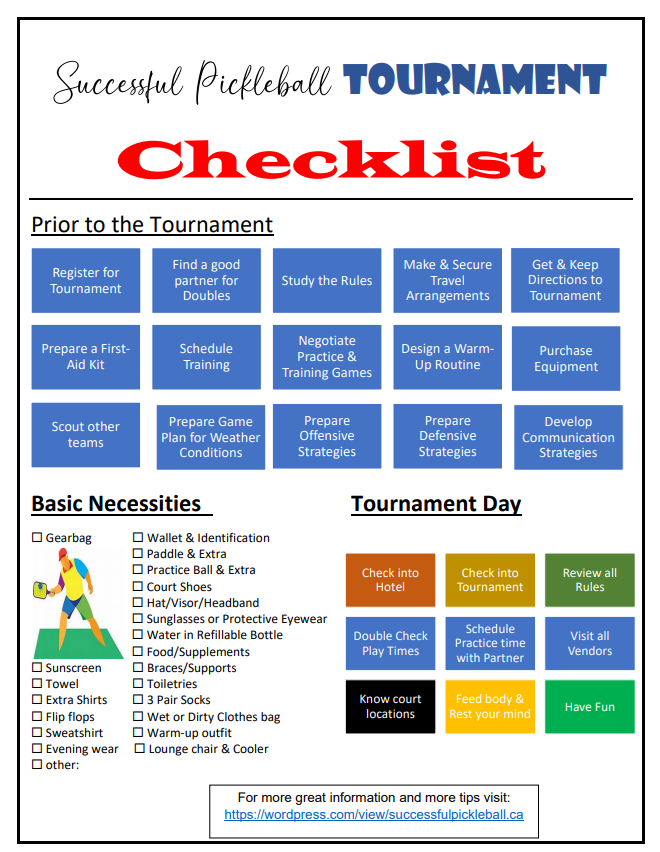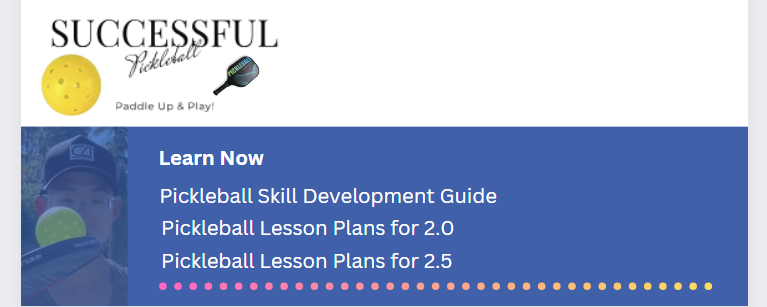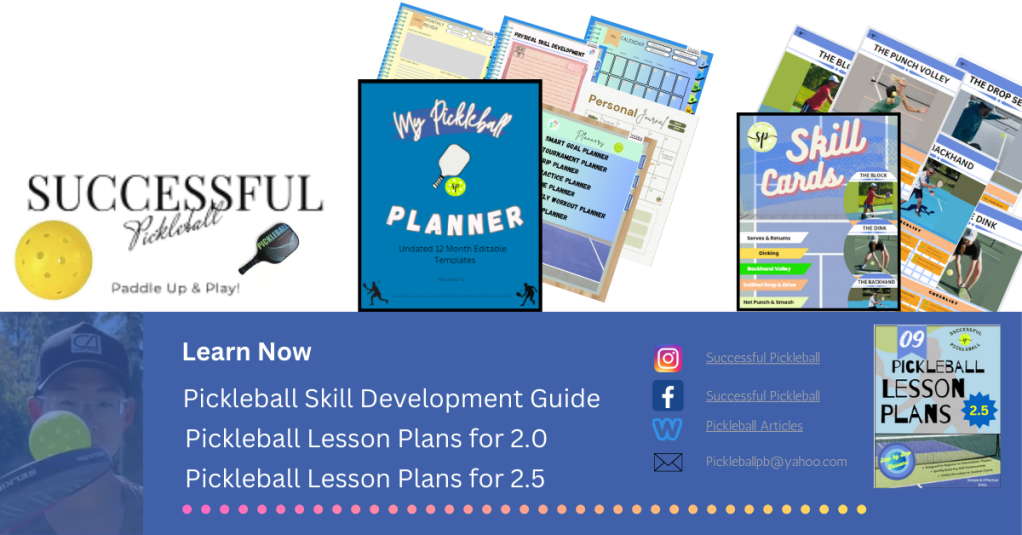In case you missed it, USA Pickleball has a few new changes to the 2024 rules.
Paddle Specifications (2.E.2/2.E.5.a/2.E.5.c)
Paddle specifications have been updated to address new and emerging paddle technology, features, and to clarify the alterations that players are allowed to make to certified paddles.
Section 3 Definitions
3.A.19. Live Ball – The timeframe from when the referee or server (or server’s partner per rule 4.D.1) starts to call the score.
3.A.X. Ball In Play – The timeframe during which a rally is played, from the hit of the ball to make the serve until the ball becomes dead.
7.I. A ball in play that is stopped by a player before it becomes dead (e.g., catching or stopping a ball in flight before it makes contact with the playing surface). The fault is on the player who stopped the ball.
Broken or Cracked Ball
11.E. Broken or Cracked Ball – Broken, Cracked, Degraded or Soft Ball. If any player suspects the ball is or becomes broken, cracked, degraded, or soft after the serve, play must continue until the end of the rally.
WRONG SCORE CALLED
4.K. – If the wrong score is called, the referee or any player may stop play before the return of serve to correct the score. The rally shall be replayed with the correct score called. After the return of serve, play shall continue to the end of the rally and the score correction made before the next serve. After the return of serve, a player who stops play to identify or ask for a score correction will have committed a fault and shall lose the rally. A player who stops play at any time after the serve to identify or ask for a score correction when the score was correctly called will have committed a fault and shall lose the rally.
New Rules

5.B.9. If the end change fails to be executed per Rules 5.B.3, 5.B.4, 5.B.5 or 5.B.8, the end change will be executed when realized. It is not a fault on either team, score is not impacted and serve remains with the player holding the serve.
Officiating Team Definition
3.A.XX Officiating Team – personnel under the leadership of the Tournament Head Referee on or off the playing surface, including Lead and Second Referees, Tracking Referee, Video Replay Referee, and Line Judges.
The term Officiating Team is used three times in the Rulebook but has not been defined until now.
13.E.3. If a line judge shows the “blocked/blinded” signal, (both hands covering the eyes) the referee can make the call immediately if they clearly saw the ball land. If the referee cannot make the call, the referee shall canvass the remaining other appropriate members of the officiating team to assist in making the call.
BALL ROLLS DOWN THE SURFACE OF A DEFLECTING NET
11.L.5.b. Except on the serve a replay will be called shall occur if the ball goes over the net and
– hits the center base
– hits any part of the horizontal bar
– the ball gets caught between the net and the horizontal bar
– hits a billowing net
– hits a net draping on the ground
Other than on the serve, if the ball goes over the net and bounces on the court and then performs any of the three above listed actions, a replay shall occur.
2.C.6 – Draping Net. Except on the serve, a replay will occur if the ball goes over the net and hits a draping net on the ground.
2.C.7 A replay shall occur if the ball goes over the net and hits the billowing net.
No Game Three End Change When First Game Forfeited Due to Late Arrival
5.B.3. In a match with two out of three games to 11 points, in game three, the teams will switch ends when the first team reaches a score of 6. Serve remains with the player holding serve. Exception: If the first game of such match was forfeited due to late arrival, the teams will not switch ends during game three.
Match Forfeit
13.I. Match Forfeit.
13.I.1.The referee will impose a match forfeit based on a combination of Technical Warnings or Technical Fouls when either of the following occurs:
13.I.1.a.13.I.1. The combined issuance of two technical warnings and a technical foul listed in Rule 13.G.2
13.I.1.b.13.I.2. After one technical foul has been assessed in accordance with Rule 13.G.3.b or Rule 13.G.2 and the subsequent issuance of a second technical foul for any reason.
13.I.1.c.13.I.3. Behavior that shall result in a match forfeit that is not due to a combination of Technical Warnings or Technical Fouls:
13.I.1.c.1.13.I.3.a. Making deliberately aggressive physical contact with an opponent, official or spectator.
13.I.1.c.2.13.I.3.b. Aggressively or recklessly striking or throwing a ball or paddle out of frustration or anger that puts an individual or facility property at risk or in danger.
13.I.2.13.I.4. The Tournament Director may impose a match forfeit for failure to comply with the tournament or host facility’s rules while on the premises, or for improper conduct on the premises between matches, or for abuse of hospitality, locker room, or failure to comply with other rules and procedures.
Add Mini-Singles as Sanctioned Event Category
12.L Mini Singles
12.L. Mini Singles. Mini Singles is played according to the same rules as Singles except as otherwise provided herein.
12.L.1. The Court: Mini Singles is played on a standard pickleball court.
12.L.1.a. An additional line shall be provided that extends the centerline of the court through each non-volley zone. The color of this line is not required to be the same as the other court lines.
12.L.1.b. Only one of the two courts at a player’s end is “in play” during a rally. The court that is in play is determined by the required player position based on their score (i.e., the right [even] or the left [odd] court).
12.L.2. Player Positions
12.L.2.a. Each player’s position is determined by their individual score. This applies at all times, whether the player is serving or receiving.
12.L.2.b. When a player’s score is even, the player plays from the right (even) court and that is the court that is in play at that end. When the player’s score is odd, the player plays from the left (odd) court and that is the court that is in play at that end.
12.L.3 Boundary of the In-Play Courts
12.L.3.a. Each player’s shot must land in bounds of the opponent’s court that is in play.
12.L.3.b. The baseline and outer sideline determine two of the three boundaries of the in-play court.
12.L.3.c. Because only one of the courts at an end is in play during a rally (i.e., either the right [even] court or the left [odd] court), the centerline of the court, including the portion that extends through the non-volley zone, serves as the other sideline of the in-play court.
12.A.4. Instructions for Mini-Singles are at https://usapickleball.org/wp-content/uploads/2022/09/MiniSingles.pdf
Referee Safety Call
10.H.2.a. In the interest of safety, if the referee determines a potential medical situation exists, (for example, heat exhaustion, heat stroke, etc.) and the player is unable to or refuses to call a medical timeout, the referee is authorized to call a referee timeout and summon medical personnel or the Tournament Director. Referee requested medical time-outs will not be charged against the player as either a standard or medical time-out.
Out Calls
6.D.9. ‘Out’ line calls must should be promptly signaled by voice and/or hand signal (as described in Rule 13.E.2)
Clarification of Net Post & Net Wire In/Out of Bounds (Rules 11.K and 11.L)
11.K. Net Posts. The net posts (including connected wheels, arms, net cable or rope on top of the net post, or other support construction) are positioned out of bounds.
11.K.1 It is a fault if a player contacts the net post while the ball is in play.
11.K.2. A ball contacting the net post results in a dead ball and the team that hit the ball loses the rally.11.K.1. A ball contacting the net, the net cable, or rope between the net posts remains in play.
11.L. Net.
11.L.1 The net and the wires or strings holding up the net are positioned (mostly) on the court. Therefore, i If the ball strikes the top of the net or the top net cable or rope that is between the net post and the net strikes the top net wire or string and lands inbounds, it remains in play.
Player may use regular timeouts after a medical timeout
10.B.2.b. If the player cannot resume play after the 15-minute medical time-out period, the match will be declared a retirement. The player may use their available regular timeouts after the medical timeout has expired to allow more time before the match must be retired.
Rationale: Players should be allowed to use their timeouts in any legal way to give them the rest that they are entitled to. It seems arbitrarily harsh to force a player to retire if they only need another minute or two to get prepared. If they have available timeouts, they are not gaming or abusing the system by using them at this time.
Drop Serve Clarification
4.A.8.b When releasing the ball, the ball shall not be propelled in any direction (thrown) downward or tossed or hit upward with the paddle or in any manner prior to striking the ball to make the serve.
The true intent of the rule has three parts:
a) do not propel (throw) the ball downward with the hand,
b) do not toss the ball upward from the hand, and
c) do not use the paddle to hit the ball upward or toss the ball upward.
Appeals
13.F.3. Only rally-ending line calls may be appealed. Any player may appeal a rally-ending line call to the referee before the next serve occurs
Coaching
13.G.1.j. – Except during time-outs and in-between games, r Receiving coaching from anyone other than a partner during a rally.
Additionally, add the following:
11.Q Coaching: Players are allowed to receive coaching at any time during a match except during a rally (see Rule 13.G.1.j). Coaching between rallies shall not interrupt the flow of the match (see Rule 10.C). Coaching shall be subject to the following restrictions:
11.Q.1 Each player may identify one person to serve as their designated coach. Players shall identify the coach and the coach’s location to the opponents and the referee. Players are allowed to change their designated coach between games. In doubles, both designated coaches are considered the team’s coaches and are allowed to coach both players.
11.Q.2 Coaches shall be positioned outside the playing surface, except at courts that have designated team or coach’s boxes in locations approved by the Tournament Director. In officiated play, coaches and designated team or coach’s boxes shall not be positioned within the imaginary extension of the non-volley zone.
11.Q.3 Designated coaches shall not be allowed to enter the playing surface at any time during the match.
11.Q.4 Coaches shall not assist players in making line calls (i.e., whether a ball is “in” or “out”), making appeals to the referee on line calls or requesting a video challenge. Players must independently make prompt line calls in accordance with Rules 6.D.7 and 6.D.9.
The game is evolving rapidly and competition at all levels is increasing. Players are developing and enhancing their physical and mental skills. Coaching can help with growing those skills resulting in a positive experience for players. Eliminating the restraint on coaching times can relieve the burden for referees to judge the degree of coaching that could lead to a warning. This type of warning interrupts the flow of the game and puts the referee in a negative light with players and supporters. As the facilitator of the game, allowing the referee to assist players in rule compliance will increase their knowledge and result in a more enjoyable experience for all.
Paddle Inspection
13.L.2.a. If any player believes a paddle is not USAP approved or does not otherwise comply with all paddle rules, the player is allowed to summon the Head Referee or Tournament Director to determine if the paddle is legal for play.
In a non-officiated match each team shall be allowed to inspect (visually and manually) the paddles of their opponent prior to the match or at any time a player switches paddles during the match. If any player believes a paddle is not USAP approved, is defective, has been altered, or is not suitable for play the Head Referee or Tournament Director shall be called to the court to determine if the paddle in question is legal for play or not.
Player must play with approved paddle.
2.F.1.a.1.
If the violation is identified prior to the match starting, the player shall switch to a paddle listed as Pass on the USA Pickleball Approved Paddle List. There is no penalty to switch paddles.
Legislative format showing the changes to the original rule.
If the violation is identified prior to the match starting, the player may shall switch to a paddle listed as Pass on the USA Pickleball Approved Paddle List without penalty. There is no penalty to switch paddles.
The player MAY switch gives the player an option. What if the player says “No, I’m not switching”. There is no rule to cover this refusal. Changing MAY to MUST takes away the option to refuse.
Overrules
13.E.4 Upon appeal, if a referee overrules a line judge’s “out” call as “in”, a replay will
occur, unless the team that benefitted from the referee’s call chooses to concede the
rally.
13.E.5. If a player disagrees with a line judges “out” call that benefited their team, the player may overrule the “out” call as “in” per rule 6.D.13. A replay will occur, unless the team that made the call to their detriment chooses to concede the rally.
Rationale: It has been a cause for frustration and conflict in more than one match I know about that the referee is by rule forced to replay a rally when a player overrules a line judges or referees “out” call call to their disadvantage. The team gets upset and argues with the ref when he calls for a replay, when they feel that they had no chance to return what was in their opinion a clear winner and they want to concede the rally. It seems only fair and in the spirit of good sportsmanship to allow the player or team to concede the rally after making the call to their own detriment if they so choose.
Scenario: During a singles match with lines judges, Player A hits a hard cross court shot to the baseline corner away from Player B who is at the NVZ. The line judge calls “out”. Lead Referee calls “Point”. Player B overrules the call and says the ball hit both lines in the corner for a clear winner. The lead referee calls “Referee Error, replay”. Player B tells the lead referee that the ball was a clear winner and he wishes to concede the rally. The lead referee says “by rule a team may concede a rally ended by a referee error to their detriment. Point”.
Overriding your own line call
6.D.12. After the completion of a rally, players may overrule a partner’s line call, their own line call, an officiating team’s line call, or an opponent’s “in” call to their own disadvantage.
Source: USA Pickleball Rules Requests | List of USA Pickleball Rules Requests













































One response to “Significant Pickleball Rule Changes for 2024”
[…] deal of time conducting comprehensive searches and creating quality articles, strategy guides, rule explanations, and step-by-step tutorials to for our readers of every skill level. Don’t miss a single […]
LikeLike